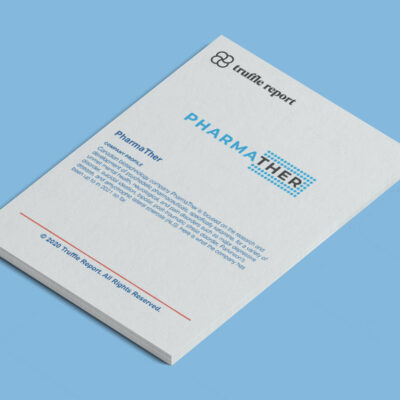We’ve discussed at length the DEA’s process for seeking religious exemptions to the Controlled Substances Act (CSA). You can read about that in my posts linked at the bottom of this one. Critics of the religious exemption petition process claim that the DEA rarely, if ever, responds to petitions. They also complain that they are never granted. We don’t really have a lot of insight into how DEA denies religious exemption petitions. But there is one good public example: DEA’s 2021 denial of Soul Quest’s religious exemption petition. Today, I want to look at it in detail. There’s a lot to get through in this one document, and I’ll write a follow up post in the coming days.
Soul Quest’s Religious Exemption Petition
Soul Quest is a non-profit based out of Florida that incorporates ayahuasca into religious practices. In 2017, it submitted a religious exemption request to the DEA. Nothing happened. In 2020, it sued the DEA (a copy of the amended complaint can be found here). Only after filing suit did the DEA even formally acknowledge receipt of the 2017 petition. And in 2021, the DEA denied Soul Quest’s religious exemption petition.
Soul Quest’s litigation against the DEA is ongoing. I will analyze that litigation in a subsequent post. But today, I want to break down DEA’s denial of Soul Quest’s religious exemption petition.
How DEA Denied Soul Quest’s Religious Exemption Petition
At the beginning of its denial, the DEA lists all the evidence it reviewed in connection with the petition. This evidence included the petition itself, supplemental submissions and documents, the records attached to Soul Quest’s pleadings in the court case, DEA interviews of Soul Quest’s leadership, and review of Soul Quest videos and website.
It’s key to note that DEA not only looked at Soul Quest’s submissions, but the allegations in a lawsuit, public statements (e.g., Soul Quest’s website), and even statements by Soul Quest’s members on the Netflix documentary “(Un)Well.” It’s unclear whether all petitions are subject to this kind of scrutiny or whether it targeted Soul Quest after suing the government. But anything in the public record is fair game.
Sincere Religious Beliefs for Religious Exemption Petitions
The first issue the DEA addressed was whether Soul Quest had a “sincere religious belief.” Today, I’ll only look at this first part of the Soul Quest analysis, and I’ll discuss the second part in a following post. Here are some of the key issues that led the DEA to deny Soul Quest’s religious exemption petition on the grounds that Soul Quest (allegedly) does not hold sincere religious beliefs:
#1 – Soul Quest’s Religious Text Was Not as Central as the DEA Thought Appropriate
The Ayahuasca Manifesto is Soul Quest’s central text. But in interviews with Soul Quest members, the manifesto was mentioned once. Notably, according to Soul Quest’s operative complaint (see paras. 29, 31), the DEA only asked it about diversion control. So it makes perfect sense that the manifesto didn’t come up. Even if DEA did ask about it and it didn’t come up, there’s a big logical gap between not hearing enough about religious texts and not having a sincere belief. If someone is in a religious group and wants to explain their beliefs to an outsider, one of the worst things they can do is cite doctrinal text. The best way to break something down is to explain it simply in universally understood terms. This is arguably what Soul Quest did (see #3 below). It is a huge error to fault Soul Quest for not citing its doctrinal text ad nauseam in interviews with outsiders. This really is a terrible way to judge whether a group’s beliefs are legitimate.
#2 – DEA Didn’t Want Soul Quest to be Inclusive
DEA stated that Soul Quest did not require its members to profess belief in the Ayahuasca Manifesto or have continuing involvement with Soul Quest after an ayahuasca retreat. This, in the DEA’s opinion, means they didn’t have a sincere religious belief. This rings very odd to me. Excluding fundamentalists, most religious groups don’t require people to profess belief in their practice or come regularly to services in order to come in the first place. There may be certain aspects of a religious practice that require certain beliefs, but we live in a time where most religious groups are not hyper-secretive and isolated. People went to my Bar Mitzvah who were not Jewish. I have been to weddings and funeral services for people from other religions. DEA’s position would call into question the religious practices of many of these groups. It seems that DEA seems to want to impose a level of gatekeeping on members of or participants in psychedelic religious groups that would not be imposed in many other modern religious groups.
#3 – Signing a Waiver or Referring to Therapeutic Benefits – No Religious Exemption!
DEA took issue with the fact that members were required to sign forms – including a medical form and a liability waiver – which were “purely pro forma.” But frankly, it would be odd if Soul Quest didn’t do this. Nobody denies that ayahuasca can have negative impacts for some people. Not having a waiver would be a red flag.
DEA also issue with Soul Quest providing medical services and claiming that ayahuasca has therapeutic or medical benefits. This too is odd. Adherents to more “established” religions often talk about how prayer, meditation, or other religious or spiritual practices can heal the body or mind. In modern society, where people are more suspect of religion in general, these discussions are often couched in medical or therapeutic terms. Imagine if DEA denied recognition to a more established religion because its leaders said that prayer could be therapeutic.
#4 – Religious Groups Simply Cannot be For-Profit
DEA pointed out that within the Soul Quest umbrella, there was a for-profit entity. It is not completely clear, but DEA claimed it was possible that the for-profit entity was selling ayahuasca. This is really a different issue from whether Soul Quest has a sincere religious belief.
#5 – Relation to Other Religious Groups
Originally, Soul Quest was related to the Oklevueha Native American Church (ONAC), which is not centered around the Ayahuasca Manifesto. Soul Quest later disassociated with ONAC, which the DEA used as another “gotcha” to claim its religious beliefs were insincere. But as Soul Quest explained, it only originally associated with ONAC for legal protection for ayahuasca. To DEA, this “proved” the insincerity of Soul Quest’s beliefs. This is a huge logical misstep. Soul Quest’s association with ONAC – whether for protection or not – does not mean its own religious beliefs were insincere.
Key Takeaways from DEA’s Denial of Soul Quest’s Religious Exemption Petition
There are some key takeaways from DEA’s denial of Soul Quest’s religious exemption petition:
- DEA will use interviews and public info to essentially depose witnesses. It will look for contradictions and interpret evidence in the least charitable light humanly possible. It does not seem to take seriously the possibility that people can use psychedelics for religious purposes.
- Groups that refer to a text rather than incorporate it into their practices, rituals, and writings will have a harder time getting through the process.
- References to medical or therapeutic benefits can undercut a religious petition. It’s possible that proper framing of these benefits within the context of a religious practice may be acceptable, but simply referring to other benefits alone will likely lead to a denial.
- DEA views inclusivity skeptically. Groups that are open to the public and don’t require participation or belief are just going to have a much harder time getting the DEA to listen.
- DEA is also suspect about groups being organized on a for-profit basis. This is an issue as it’s already a challenge for groups to obtain 501(c)(3) status.
- Associating with another group or having evolving beliefs is apparently bad. Never mind that literally every religion has evolved over time.
In my next post on this topic, I’ll look at the second part of DEA’s denial of Soul Quest’s petition to answer the question of how DEA denies religious exemption petitions. In the meantime, for more of my Psychedelics Law Blog posts on religious freedom issues, see:
- Religious Use of Psychedelic Drugs Under Federal Law: A History
- How Religious Groups Can Petition to Use Psychedelics Legally
- Another Win for Religious Use of Psychedelics: New Hampshire v. Mack
- DEA Violates Religious Freedom on Psychedelic Drug Use
- Can Psychedelic Religions Obtain 501(c)(3) Status?
- Religious Exemptions are Procedural Nightmares
The post How DEA Denies Religious Exemption Petitions: Part 1 appeared first on Harris Bricken Sliwoski LLP.



